Frontpage News (3259)
 In July 2018, Vice President Yemi Osinbajo launched the Patients’ Bill of Rights (PBoR).
In July 2018, Vice President Yemi Osinbajo launched the Patients’ Bill of Rights (PBoR).
The event at the State House Conference Centre, Abuja,.organised by the Consumer Protection Council (CPC), was attended by critical stakeholders in Nigeria’s health sector, including the Nigerian Medical Association (NMA).
PBoR is an aggregation of patients’ rights that exist in other instruments including the 1999 Constitution, Consumer Protection Act, Child Rights Act, Freedom of Information Act, National Health Act, and other sundry regulations.
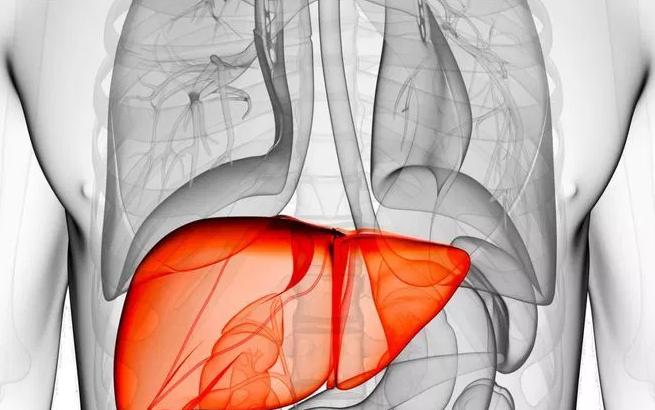 There are 1.7 million Nigerians with diabetes type 1 and type 2, according to the International Diabetes Federation. That figure is about the same as the population of Bayelsa State.
There are 1.7 million Nigerians with diabetes type 1 and type 2, according to the International Diabetes Federation. That figure is about the same as the population of Bayelsa State.
The life of a man or woman with type 2 diabetes in Nigeria is one regular visit to doctors, tests and expensive medication taking either as tablets or injections. It is a life fraught with financial, physical and emotional stress. But there is emerging evidence that this does not have to be so. Research in the past couple of years points conclusively to the fact that type 2 diabetes can be reversed.
 Commissioner for health, Lagos state, Dr. Jide Idris, has restated commitment to reduce the maternal mortality across the state and environs. He made the remarks during the facility tour of rehabilitated Ayinke House at the Lagos State University Teaching Hospital (LASUTH).
Commissioner for health, Lagos state, Dr. Jide Idris, has restated commitment to reduce the maternal mortality across the state and environs. He made the remarks during the facility tour of rehabilitated Ayinke House at the Lagos State University Teaching Hospital (LASUTH).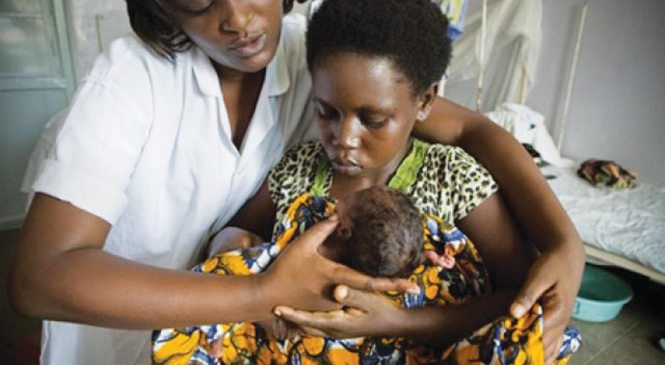 Despite several interventions to reduce Maternal Mortality Rate (MMR), Nigeria still contributes ten percent of the global burden of maternal deaths.
Despite several interventions to reduce Maternal Mortality Rate (MMR), Nigeria still contributes ten percent of the global burden of maternal deaths. The wife of the governor of Plateau state, Mrs Regina Simon Lalong has commission six primary health cares in Jos South and Jos North local government areas of the state to enable women access and use of family planning services.
The wife of the governor of Plateau state, Mrs Regina Simon Lalong has commission six primary health cares in Jos South and Jos North local government areas of the state to enable women access and use of family planning services.
The primary health cares commissioned were located at Bukuru Jos Expressway, Bukuru Central and Vwang in Jos South LG.
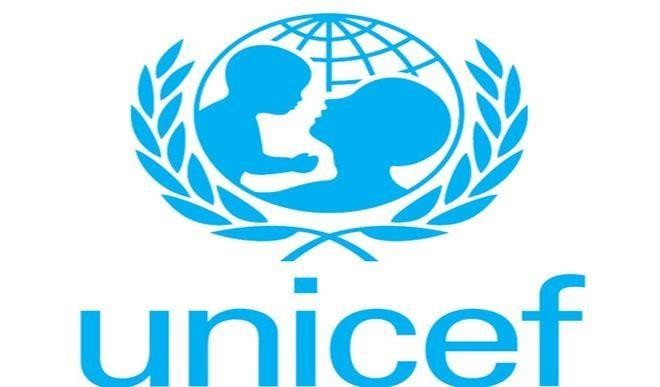 The United Nations Children Fund (UNICEF) is launching a new global campaign, #Vaccineswork to emphasize the power and safety of vaccines among parents and wider social media users.
The United Nations Children Fund (UNICEF) is launching a new global campaign, #Vaccineswork to emphasize the power and safety of vaccines among parents and wider social media users.
Amid growing outbreaks of vaccine-preventable diseases, UNICEF’s campaign will use social media to show that most parents trust vaccines to protect their children.
 Shalina Healthcare is set to promote pharmacy as a profession in Nigeria by engaging tertiary health institutions in the country in the professional development of young pharmacists.
Shalina Healthcare is set to promote pharmacy as a profession in Nigeria by engaging tertiary health institutions in the country in the professional development of young pharmacists.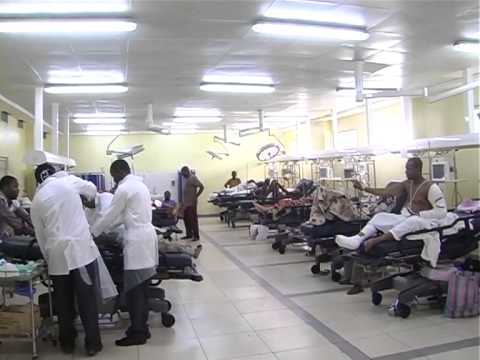 The Benue State University Teaching Hospital (BSUTH), Makurdi charges just N60,00 for hip replacement surgeries as part of its social service to Benue people, according to Prof. Terrumun Swende, its Chief Medical Director.
The Benue State University Teaching Hospital (BSUTH), Makurdi charges just N60,00 for hip replacement surgeries as part of its social service to Benue people, according to Prof. Terrumun Swende, its Chief Medical Director.
Mr Swende told journalists on Friday in Makurdi that the teaching hospital’s primal objective was not to generate revenue but to offer tertiary healthcare services, train doctors and consultants, and offer other social services.
 On the heels of the 2019 general election, economic experts and analysts of the local manufacturing industry have called for a turnaround of fortunes of the Nigerian industrial sector.
On the heels of the 2019 general election, economic experts and analysts of the local manufacturing industry have called for a turnaround of fortunes of the Nigerian industrial sector.
They have asked the incoming administration to promulgate policies that would facilitate maximizing potentials of the Nigerian pharmaceutical manufacturing industry. President of the Pharmaceutical Society of Nigeria (PSN), Mazi Sam Ohuabunwa, who spoke at the 1st Association of Industrial Pharmacists of Nigeria (NAIP) 2019 Bi-Monthly meeting and lecture, noted that “Companies cannot grow if the economy is not growing,”
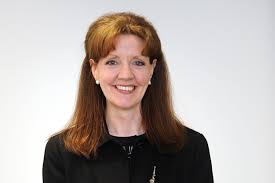 Almost £3m is being invested by the Scottish government to expand experiential learning of student pharmacists, with some funding being used to enable students to experience remote and rural practice.
Almost £3m is being invested by the Scottish government to expand experiential learning of student pharmacists, with some funding being used to enable students to experience remote and rural practice.
Under the Scottish Pharmacy Experiential Learning scheme, student pharmacists currently undertake experiential learning in community pharmacy and hospitals, but a funding injection of £2.85m for 2018/ 2019 will enable them to experience new settings such as primary care and NHS 24.
More...
 Medical doctors practicing in hospitals and health facilities owned by the Imo State Government on Wednesday began what they say is “indefinite strike action.” The chairman, Nigeria Medical Association in the state, Kyrian Duruewuru, who briefed journalists in Owerri, accused the state government of treating the striking doctors unfairly.
Medical doctors practicing in hospitals and health facilities owned by the Imo State Government on Wednesday began what they say is “indefinite strike action.” The chairman, Nigeria Medical Association in the state, Kyrian Duruewuru, who briefed journalists in Owerri, accused the state government of treating the striking doctors unfairly.
 The National Agency for Food, Drug Administration and Control (NAFDAC) has alerted the public of the circulation of a fake anti-hypertensive drug.
The National Agency for Food, Drug Administration and Control (NAFDAC) has alerted the public of the circulation of a fake anti-hypertensive drug.
Moji Adeyeye, NAFDAC’s Director General (DG), in a statement on Tuesday in Abuja, said the drug, Hydrochlorothiazide 50mg (containing Glibenclamide) was currently circulating in Cameroon.
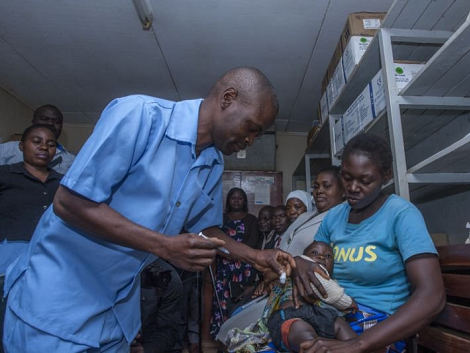 As the global community gears up to celebrate World Malaria Day, which is commemorated annually on 25 April, the Government of Malawi has taken a giant stride in launching the world’s first malaria vaccine, in a landmark pilot programme on Tuesday.
As the global community gears up to celebrate World Malaria Day, which is commemorated annually on 25 April, the Government of Malawi has taken a giant stride in launching the world’s first malaria vaccine, in a landmark pilot programme on Tuesday.
Announcing the epoch-making pilot programme, the World Health Organisation (WHO) through a press statement, applauded the initiative of the Malawian government, in partnering with the institution, along with two other African countries, towards the elimination of malaria in Africa.
 The World Health Organisation (WHO) has recently revealed new ways that digital technology can be used to improve human health through computers and mobile phones.
The World Health Organisation (WHO) has recently revealed new ways that digital technology can be used to improve human health through computers and mobile phones.
“Harnessing the power of digital technologies is essential for achieving universal health coverage,” said WHO Director-General, Dr Tedros Adhanom Ghebreyesus. “Ultimately, digital technologies are not ends in themselves; they are vital tools to promote health, keep the world safe, and serve the vulnerable.”






